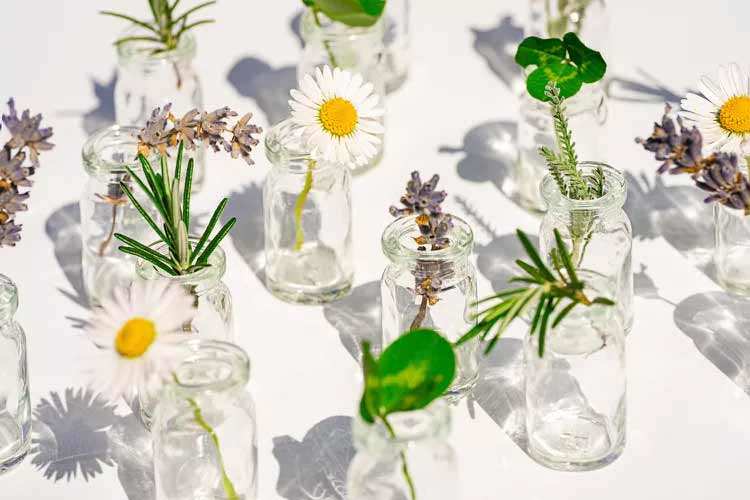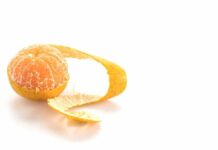
A combination of medications, diet changes, and exercise adjustments are usually used to help manage gout and prevent flare-ups. However, there are several herbs that many people find helpful when treating gout symptoms.
This article reviews some of the herbs commonly used in gout treatment.
Gout is a common type of inflammatory arthritis. Its most frequent symptoms include pain, swelling, and redness around the affected joint. Gout often impacts a big toe but can also appear in elbows, knees, wrists, and ankles.1
Herbs for Gout
Several herbs are thought to have healing properties to help alleviate symptoms of gout.
Devil’s Claw
Devil’s Claw (Harpagophytum procumbens) originates from the Kalahari desert in South Africa. It’s part of the sesame family and is named after the hook-like appearance of the fruit it grows.
Devil’s Claw is often used for gout treatment because it contains compounds called iridoid glycosides, known to have anti-inflammatory effects.2 It may also have antioxidant effects, which help fight off damaging free radicals that may worsen inflammatory conditions like gout.3
Additionally, the plant contains harpagoside, a compound thought to have pain-relieving and anti-inflammatory properties. In fact, one review found that a Devil’s Claw extract containing 60 milligrams (mg) of harpagoside per serving effectively reduced pain, improved mobility, and reduced the need for medications among people with arthritis of the hip or knee.4
Devil’s Claw can be found in many herbal teas or purchased on its own in fine powders, capsules, or extracts.
Burdock Root
Burdock root (Arctium lappa L.) is a vegetable with long roots and a history of being used for conditions ranging from digestion to detoxification. It’s also rich in antioxidants and may help reduce inflammation.
Some research has found that burdock root tea helps fight oxidative stress and reduces inflammation markers among people with osteoarthritis, an inflammatory joint condition like gout.5
You can find fresh burdock root or dried versions in tea, powder, oil, and extract.
Ginger
Ginger (Zingiber officinale Roscoe) is a flowering plant related to turmeric and cardamom. The most commonly used part of the ginger plant is the rhizome, or the root, which is used as a supplement or turned into a cooking spice.
Research shows that ginger has anti-inflammatory and antioxidant activity. For example, ginger can help reduce inflammation among people with osteoarthritis and rheumatoid arthritis.67
Many of these benefits are attributed to gingerol, zingerone, and shogoal, its main active compounds.89 Specifically, one of these is called [6]-shogaol and has shown anti-gout effects in animal studies.10
Ginger can be found in its raw root form and dried powders, extracts, oils, juices, and teas.
Milk Thistle
Milk thistle (Silybum marianum) is a flowering herb related to daisies and ragweed. It grows a single purple flower with large prickly leaves with white veins running through them.
Research suggests that milk thistle has antioxidant and anti-arthritic properties.11 One animal study found that milk thistle may be able to lower uric acid levels, which could be helpful for people with gout.12
Milk thistle is sold in capsule form, as well as milk thistle extracts, tea bags, and tablets.
Hibiscus
Hibiscus is a garden flower that has a history of use in herbal remedies. Some scientists believe that hibiscus has anti-gout activity. Many people try using hibiscus for gout treatment because it may help lower uric acid levels, according to animal research.13
You can find hibiscus in various forms, including extracts, tea, or as a supplement.
Alfalfa Sprouts
Alfalfa (Medicago sativa) is a plant most often consumed as sprouts. It has a long history of use in traditional medicine to help treat conditions like diabetes, menstrual cramps, high blood cholesterol, urinary tract infections (UTIs), and arthritis. However, there’s generally little scientific evidence for these uses.14
However, more recent research suggests that alfalfa can prevent the build-up of uric acid, which would be key to gout treatment.15 Some studies also indicate that alfalfa may inhibit inflammatory compounds called cytokines, potentially reducing pain and inflammation associated with arthritic conditions like gout.16
Alfalfa sprouts can be purchased as food at many grocery stores or farmers’ markets. Alfalfa is also sold in supplement form and is one of the most frequently used ingredients in herbal arthritis supplements.
Other Home Remedies for Gout
In addition to the herbs above, several other home remedies may help reduce the severity and frequency of gout flare-ups.
These include the following:
- Bananas: Bananas are nutrient-rich fruits that are also very low in purines. A low-purine diet may help reduce uric acid production and benefit gout flare-ups. Bananas are also a good source of vitamin C, which some research suggests may offer protection against gout.17
- Hot or cold compress: Switching between a 2 to 3-minute-long hot compress and a 30-second cold compress may help reduce pain and inflammation in affected joints.
- Epsom salt: Epsom salt is high in magnesium, which may help promote relaxation, reduce stress, and improve pain and swelling. However, more research is needed for specific conditions like gout.181920
- Tart cherries: Most research on tart cherries recommends three servings consumed over two days to be the most effective for gout symptoms. This could be drinking tart cherry juice or eating cherries.212223
Summary
Gout is a common inflammatory condition that causes swelling and pain in certain joints, most often the big toe. While medications, diet, and exercise are often used to treat gout symptoms, some people find herbs like ginger, milk thistle, Devil’s Claw, burdock root, hibiscus, or alfalfa may help.
Keep in mind that herbal supplements can interact with each other, as well as certain medications. Always speak with your healthcare provider before adding a new herbal supplement to your routine to ensure it’s safe and appropriate for you.
A Word From VeryWell
Gout flare-ups can be painful and frustrating, especially when they interfere with your ability to enjoy everyday activities. If you experience gout and are looking for other natural methods of managing symptoms, some of these herbs may help. Talk to your healthcare provider to see if they are right for you.
Important Notice: This article was originally published at www.verywellhealth.com by Lauren Panoff, MPH, RD where all credits are due. Medically reviewed by Marissa Sansone, MD.
Disclaimer
The watching, interacting, and participation of any kind with anything on this page does not constitute or initiate a doctor-patient relationship with Dr. Farrah™. None of the statements here have been evaluated by the Food and Drug Administration (FDA). The products of Dr. Farrah™ are not intended to diagnose, treat, cure, or prevent any disease. The information being provided should only be considered for education and entertainment purposes only. If you feel that anything you see or hear may be of value to you on this page or on any other medium of any kind associated with, showing, or quoting anything relating to Dr. Farrah™ in any way at any time, you are encouraged to and agree to consult with a licensed healthcare professional in your area to discuss it. If you feel that you’re having a healthcare emergency, seek medical attention immediately. The views expressed here are simply either the views and opinions of Dr. Farrah™ or others appearing and are protected under the first amendment.
Dr. Farrah™ is a highly experienced Licensed Medical Doctor certified in evidence-based clinical nutrition, not some enthusiast, formulator, or medium promoting the wild and unrestrained use of nutrition products for health issues without clinical experience and scientific evidence of therapeutic benefit. Dr. Farrah™ has personally and keenly studied everything she recommends, and more importantly, she’s closely observed the reactions and results in a clinical setting countless times over the course of her career involving the treatment of over 150,000 patients.
Dr. Farrah™ promotes evidence-based natural approaches to health, which means integrating her individual scientific and clinical expertise with the best available external clinical evidence from systematic research. By individual clinical expertise, I refer to the proficiency and judgment that individual clinicians acquire through clinical experience and clinical practice.
Dr. Farrah™ does not make any representation or warranties with respect to the accuracy, applicability, fitness, or completeness of any multimedia content provided. Dr. Farrah™ does not warrant the performance, effectiveness, or applicability of any sites listed, linked, or referenced to, in, or by any multimedia content.
To be clear, the multimedia content is not intended to be a substitute for professional medical advice, diagnosis, or treatment. Always seek the advice of your physician or other qualified health providers with any questions you may have regarding a medical condition. Never disregard professional medical advice or delay in seeking it because of something you have read or seen in any website, video, image, or media of any kind. Dr. Farrah™ hereby disclaims any and all liability to any party for any direct, indirect, implied, punitive, special, incidental, or other consequential damages arising directly or indirectly from any use of the content, which is provided as is, and without warranties.








